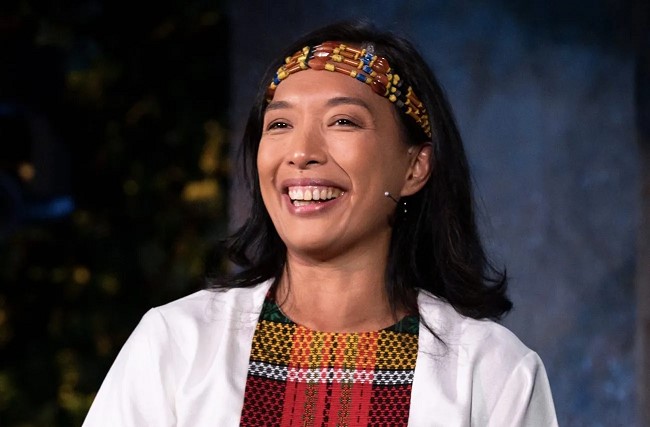As Indigenous Peoples and local communities celebrate the approval of the new Programme of Work, they call for the adoption of the Subsidiary Body on Article 8j now

As we head to the final stages of the Sixteenth Meeting of the conference of the parties (COP16), the International Indigenous Forum on Biodiversity (IIFB) celebrates a victory after the adoption of the new Programme of Work on Article 8j, yesterday at the Plenary.
The new Programme of Work is the main instrument for parties to put into practice their commitment to respect, preserve and maintain traditional knowledge and to promote the fair and equitable sharing of the benefits derived from the use of such knowledge.
“This sets us on a path to making sure that the Kunming-Montreal Global Biodiversity Framework (KMGBF) is implemented in full partnership with Indigenous Peoples and local communities,” said Jennifer Corpuz, from IIFB.
Although Parties adopted the Programme of Work, the Subsidiary Body on Article 8j (SB8j), is still being negotiated. The adoption of a permanent body will provide an institutional workspace dedicated to traditional knowledge and it will represent a step forward in recognising and respecting the rights of Indigenous Peoples and local communities and their contributions to the conservation of biodiversity.
“We need to take action urgently. We would like to send this message out very strongly. We need to establish the SB8j now. If there are issues that are outstanding, we can deal with those at the next COP. But the main message is that we need it now,” concluded Corpuz.
“The SB8j is the only mechanism that will guarantee that our systems, customary practices and traditional knowledge are recognised and that we can keep fulfilling our stewardship of biodiversity,” said Manuel Mavisoy, from the Mesa Permanente de Concertación (MPC) of Indigenous Peoples of Colombia.
These were the main topics addressed at the IIFB press conference held on Thursday, October 31, at COP16, in which IIFB spokespersons took stock of the progress and pending challenges to achieve the full and effective participation of Indigenous Peoples and local communities in the Convention on Biological Diversity (CBD).
Another victory for Indigenous Peoples and local communities was adoption of a Traditional Knowledge indicator as a headline indicator, which means it is mandatory for Parties to report on it. The land use and land tenure indicator will monitor the situation of indigenous lands and waters and changes in land use, and crucially this will be done in partnership with Indigenous Peoples and local communities.
“This means that in the coming year, Indigenous Peoples and local communities will be working with parties to monitor the secure tenure of indigenous and traditional lands and waters,” explained Joji Cariño, from IIFB.
In regard to Digital Sequence Information (DSI) the IIFB has been calling for the inclusion of Indigenous Peoples and local communities in the governance of both the DSI mechanism and its multilateral fund. One of the biggest areas of negotiation with the multilateral fund is direct allocation. The IIFB are working to ensure to ensure that they are the primary beneficiaries of this fund, as they are most effective guardians of biodiversity.
“We need money to flow directly into the fund and then out to communities as soon as possible. The global biodiversity crisis is happening right now. We don’t have any more time to wait. We urge them to keep this in mind”, said Katie Lee Riddle, from IIFB.
“Biodiversity can´t wait. We urge all of you to raise awareness to the parties, delegates, so that the SB8J becomes a reality tomorrow. So that we can actually call this COP the COP of the people,” said Ramiro Batzin, co-chair of the IIFB.
